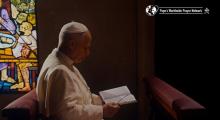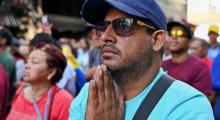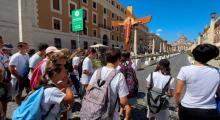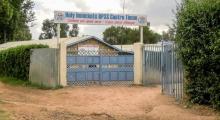Issued by the Catholic Center for Studies and Media - Jordan. Editor-in-chief Fr. Rif'at Bader - موقع أبونا abouna.org
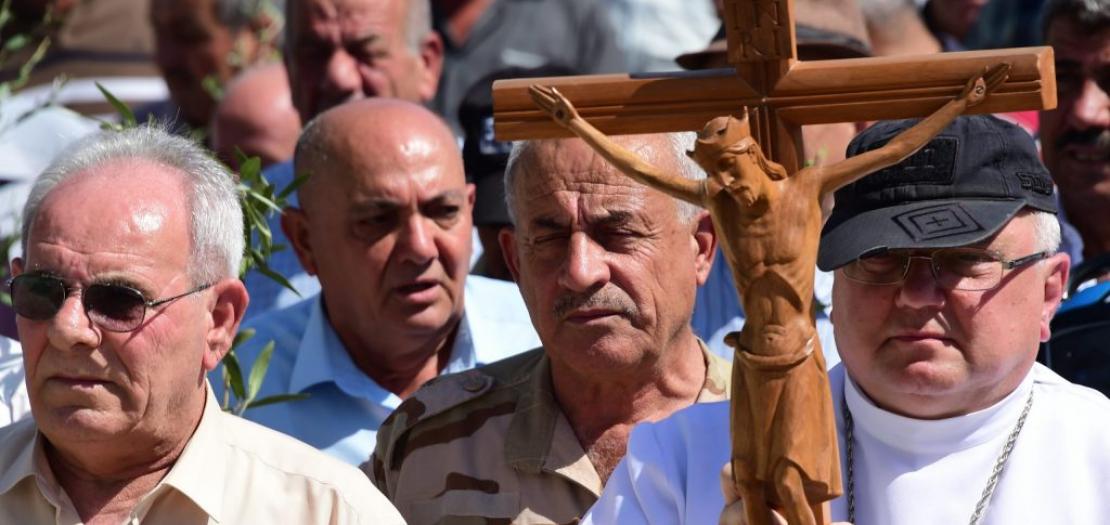
Few have fallen ill, but all those who live in the Siberian city of Novosibirsk are affected by the lockdown and its economic impact—particularly the poor, the unemployed, the elderly and children from lower-income families. The women religious working in the Roman Catholic Diocese of the Transfiguration at Novosibirsk focus most of their attention on the most vulnerable. They told Aid to the Church in Need (ACN) about their experiences.
Even in times not marked by a pandemic, the work of these sisters is a Herculean task. Sister Theresa Witschling, a Daughter of Charity of Saint Vincent de Paul, describes it as follows: “Siberia; the people call this region ‘a house without a roof.’ A region that, throughout its history, has accepted countless exiles. Many of them starved to death, died performing forced labor under inhumane conditions, or they were killed by the cold. The long, cold winters and the short, hot summers make it unmistakably clear: life here is not easy.”
About one million people with Catholic roots live in the Diocese of the Transfiguration in West Siberia, most of them of Ukrainian, Polish or German descent. The diocese covers an area of more than two million square miles. Some 40 priests serve in 70 parishes, covering enormous distances. Without the assistance of the sisters, it would be impossible to provide pastoral care for the faithful living scattered across the diocese.
Sister Theresa and two other sisters came to Siberia in 2015. The Daughters of Charity operate a children’s center in Slavgorod, southwest of Novosibirsk. Sister Theresa reports: “Most of the children here are from lower-income families and have a difficult home life with practically no parental care. No matter whether both parents are out working all day for little pay or one of the parents has found work in another country and is gone for months at a time to secure the family’s livelihood, and the children are left to their own devices far too often.” The sisters do homework with the children, engage them in projects and make sure that one hundred children get a free school lunch—often the only warm meal the children have all day.
This all changed with the pandemic. “It has made our work here more complicated. Many people have lost their jobs, or at least their wages have been cut. They knock on our door asking for help, if only for a piece of bread for the children,” says Sister Theresa. The sisters are particularly beloved among the homeless: “These people all have their painful memories and emotional wounds. They do not come to us solely for material assistance. They are just grateful to receive a little kindness and warmth.”
The lockdown presents a challenge to all communities of religious sisters in the diocese. The Sisters of Saint Elizabeth in Novosibirsk miss visiting parish members. Says one sister: “Through our regular visits we became friends. They often said to us as we took our leave, ‘Please don’t leave me, Sister. Please come back!’” The sisters now use the telephone to stay in touch with all those without access to the internet, particularly older people who are suffering the most from social distancing.
Like most congregations, the Servants of the Lord and the Virgin of Matará in Omsk have shifted their educational efforts completely to the virtual realm. They now teach catechesis through video conferences; and, working with adolescents, they are making short videos to boost morale. “We hope that our work inspires adolescents to think about God’s Word, even in these times of the Coronavirus. We pray that these from a human perspective terrible times, will help us all people to grow in faith, in hope and in love for God and our neighbors,” Mother Maria Glum says.
The Carmelites in Novosibirsk, the only contemplative community in the diocese, are battling this pandemic with the most powerful instrument that Christians have—prayer. Sisters Teresamaria, Christina and Agnija write: “We pray for the healing of the sick, comfort for those who are suffering, relief for medical workers and for the protection of the most vulnerable groups of people against infection.
“We also pray for the scientists who are working to develop medicines and a vaccine for the virus and we have not forgotten those working in government, who have to solve far-reaching socio-economic problems. In gratitude for the aid that we receive from you, we also include ACN and its benefactors in the prayers we offer up to our Lord.”
ACN supports all 68 sisters who are serving at 18 locations in the Diocese of the Transformation at Novosibirsk. “It would not merely be a disappointment, but a catastrophe for the sisters” if this aid were discontinued, Novosibirsk Bishop Joseph Werth says. Aid is even more vital during the pandemic lockdown, when churches are closed and they have to do without the weekly collection.


